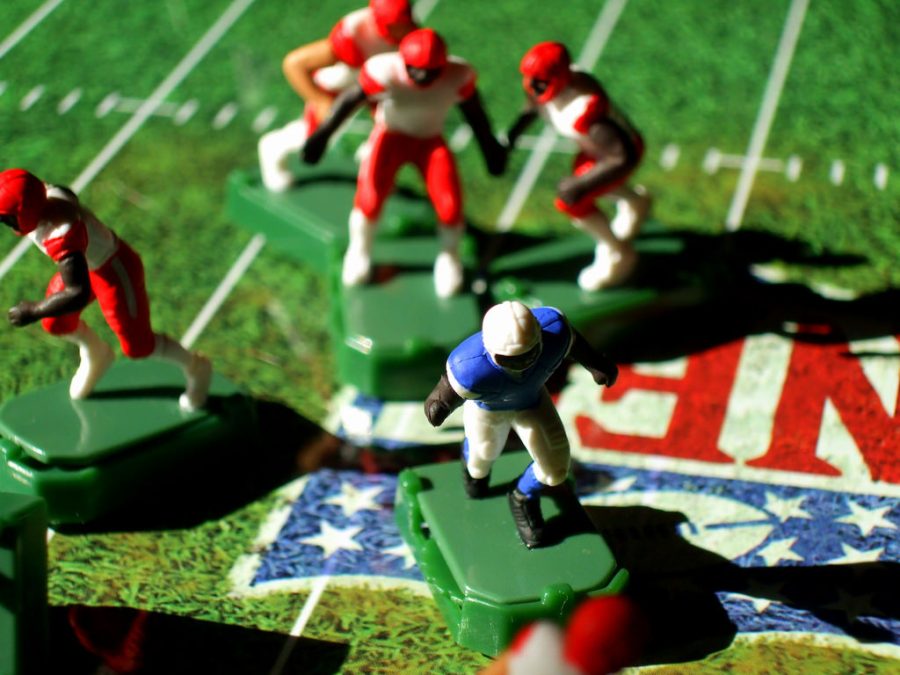Students compete for virtual victory in fantasy football
November 9, 2018
New York Giants receiver Odell Beckham Jr. catches a 76-yard touchdown against the San Francisco 49ers. “Yes, that’s 13.6 points for my Fantasy team!” Senior Tatsumi Eng, a lifelong 49ers fan, cheers as Beckham performs a celebratory end zone dance. If this had happened in an actual game, 49ers fans nearby would have looked at Eng in disgust. But in Fantasy Football, where friends draft individual players, an athlete’s team no longer matters. Fantasy players only care about an athlete’s performance, and with every reception, interception, touchdown and yard gained, players gain points.
Fantasy Football is an online game in which participants become virtual managers of their own football teams. They draft real players from any National Football League (NFL) team for their respective positions, such as quarterback, wide receiver, tight end and running back, however, the whole team’s defense counts as one position. Points are gained through player scoring and yardage. Fantasy Football is like a version of the stock market where athletes are the stocks, and how well they perform is equivalent to a stock’s value. Both are unpredictable: green NFL players may suddenly dominate one game and become popular through Fantasy. On the other hand, veteran players who have proven themselves to be excellent at the sport may suddenly get injured, making them an unpopular choice in Fantasy. In the game, players are only valued for their individual performances.
At Lynbrook, many students and teachers take part in Fantasy, forming leagues together with friends to compete with each other. Fantasy gives students an incentive to keep up with football, which in turn creates more passion for the sport.
“[Through playing Fantasy Football], I found more reason to follow football games,” said senior and varsity football player Jay Lee. “I now watch many games to learn the best lineups that I can choose for Fantasy.”
In addition to serving as entertainment, Fantasy allows students to share memorable moments with their friends.
“My best moments from playing Fantasy Football come from the enjoyment of playing against my friends on a weekly basis in a friendly but competitive manner,” Eng said. “We can all get some bragging rights when we beat each other.”
Teachers who play Fantasy Football have found this game another opportunity to connect with students in a way that they usually would not within an academic setting.
“My TA’s and students who play football or Fantasy help me set up my team’s lineup,” said literature teacher Diana Albaker. “We talk about football often, and it becomes a way for us to bond over something other than academics.”
Some leagues even form a cash prize pool, in which each participant pitches in varying monetary amounts. The participant who wins the finals keeps the entire cash pool. But players who lose one year do not have to worry: with the NFL season resetting every year, Fantasy players always have a fresh start to the game. New rookies enter the playing field, and player performance varies, making each year’s Fantasy experience unique. With its replayability, Fantasy allows students to correct mistakes they made in the previous seasons.
“Our league creator was a teacher who used to work here,” Albaker said. “I plan to play in the future as it is a way to engage with friends and coworkers who both live here and far away from us.”
NFL and football are a major part of American culture, and Fantasy Football is an extension of it. With Fantasy, participants who do not play football in real life can feel more connected to the NFL and the players they love. At Lynbrook, Fantasy Football is a way for teachers and students to connect with each other. With a shared hobby, they can bond and share memories of fun and friendly competition.




























































